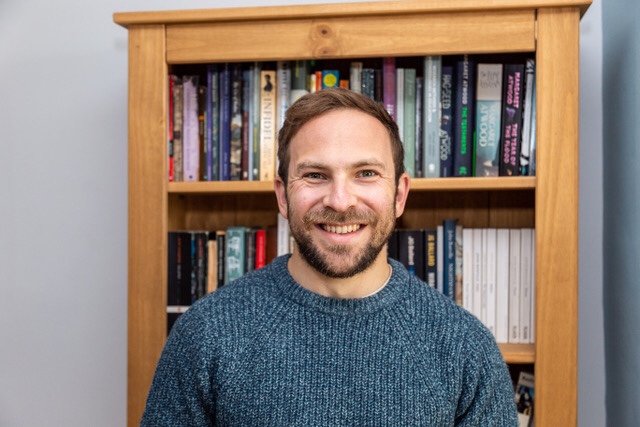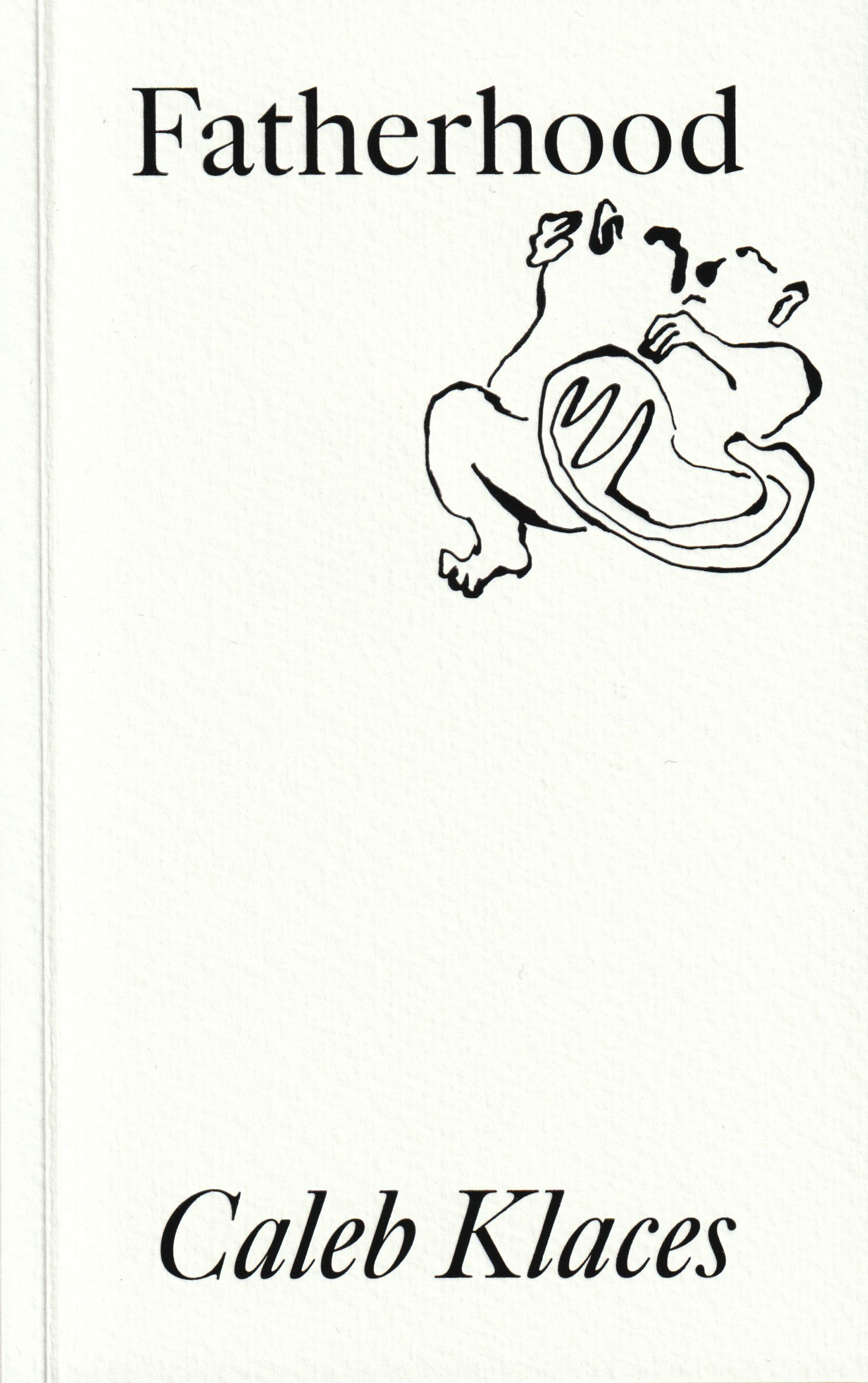The question of form may never be resolved. Is the novel better than poetry? Are short stories just novel-lite?
In Fatherhood (Prototype, 2019), Caleb Klaces avoids that scrutiny completely by mixing two of those forms together. Fatherhood combines ‘prose and poetry in an experimental work of verse fiction’.
The text tells the story of Caleb Klaces becoming a father and growing into his mature adulthood. He and his wife buy a house, suffer a miscarriage, and bring up their daughter. A burst riverbank ruins the first floor of their house, but restores Klaces’s sense of self and belief in his own fatherhood.
Several poems intersperse the narrative. They range from poems that depict the narrator’s interior musings to those that advance the plot. One of the first of these comes immediately after the narrator’s first moments of self doubt. In response:
Meanwhile
my coming-of-age hides
in the shoe cupboard. I visit
and find it outraged, refusing to account
for these new days. […]
I convince
myself to love
even though I do.
Caleb Klaces, Fatherhood (Prototype, 2019), p. 33
As Fatherhood develops, this strand of self-doubt and self-discovery takes centre stage, shifting the quotidian acts of fatherhood to secondary interest.
Part of the self-doubt manifests in the torturously-produced novel that the protagonist is writing. It seems pitiable, and then tragic when the river bursts its banks and floods the plain where the family live in their newly-bought home:
The expert restorer of manuscripts sat down opposite me on the only table of the library café. […] Look at you, she said, storing your most precious possessions where the water could get them. It is as though you were so happy you wanted to break it down and start again.
Caleb Klaces, Fatherhood (Prototype, 2019), pp. 139-40
Fatherhood is about this novel that goes unwritten inside the novel—or that is rewritten into the novel Fatherhood. But Fatherhood is also about fatherhood, and the protagonist Caleb who is possessed of two father figures—a biological father, and a stepfather—whose supernumerary presences make him think that he is not enough father for his daughter. At least 100% not enough.
Fatherhood is also to be found in paternity, and the protagonist is interested in his own antecedence, whether his paternal ancestry from the East End, or the maternal lineage from Russia and Northern Ireland. The quest for these men comes to bear the weight of the protagonist’s claims to paternal authenticity himself.
And, inasmuch as the protagonist is writing a novel about antecedent fatherhood, and since this novel is about the protagonist’s struggle with being a father, this novel comes extremely close to resembling a memoir or autobiography.
Clearly this is deliberate. There are a few overt signs that this novel is playing with the authentic-fictional boundary. For instance, once the river has flooded the ground floor,
We stumbled to the staircase and dragged ourselves up the dry steps, stripping off as we climbed to the dry bedroom. We made love among the bedrooms.
For six drafts that was the truth. But now I am ready to admit that when our house flooded I stayed, even in fiction, with my mother and stepfather.
Caleb Klaces, Fatherhood (Prototype, 2019), p. 121
The novelist and protagonist share the same name, and the story told in Fatherhood leads, logically, to the production of this text. There linger questions as to the status of the text, whether or not it is fictional. The introduction of the verse into the largely prose narrative adds to those questions and suggests, in my mind at least, a more memoir-like text. The pages often read like journal entries with their dates stripped off. There is an interiority typical of modernist novels, allied to a postmodern playfulness in its formal experimentation.
With moments like those above, when the text’s fictionality is explicitly questioned, it could even be argued that this text is postpostmodernist or meta-modernist. And this, I think, enhances the text’s literary value.
However, I’m stuck as to how to rate this book. It is fun, interesting, and emotive. And yet, it neither feels wholly important, nor experimental enough. The text’s conceit that fatherhood may be both an act that’s difficult to fulfil and also an unfufilling role—that fatherhood isn’t everything—is mirrored in the text’s formal play. The moments of poetic irruption, the times when it brings its own artificiality and authenticity into question, and the occasions when the narrative sinks deeply into its protagonist’s fully-formed consciousness: these formal teases, too, aren’t quite everything.
I think Klaces could have pushed the fantastical, dream-like quality of the story further. I wanted it weirder, crazier, more disorienting. Oddly enough, as it is, Fatherhood is just too strait laced.
In spite of its fine edition (Prototype have produced a beautiful book), and despite the text’s many successes, therefore, I was left wanting more. Fatherhood, I realised, just wasn’t quite everything.
Caleb Klaces’s Fatherhood is available in paperback from Prototype, RRP £12


Leave a Reply